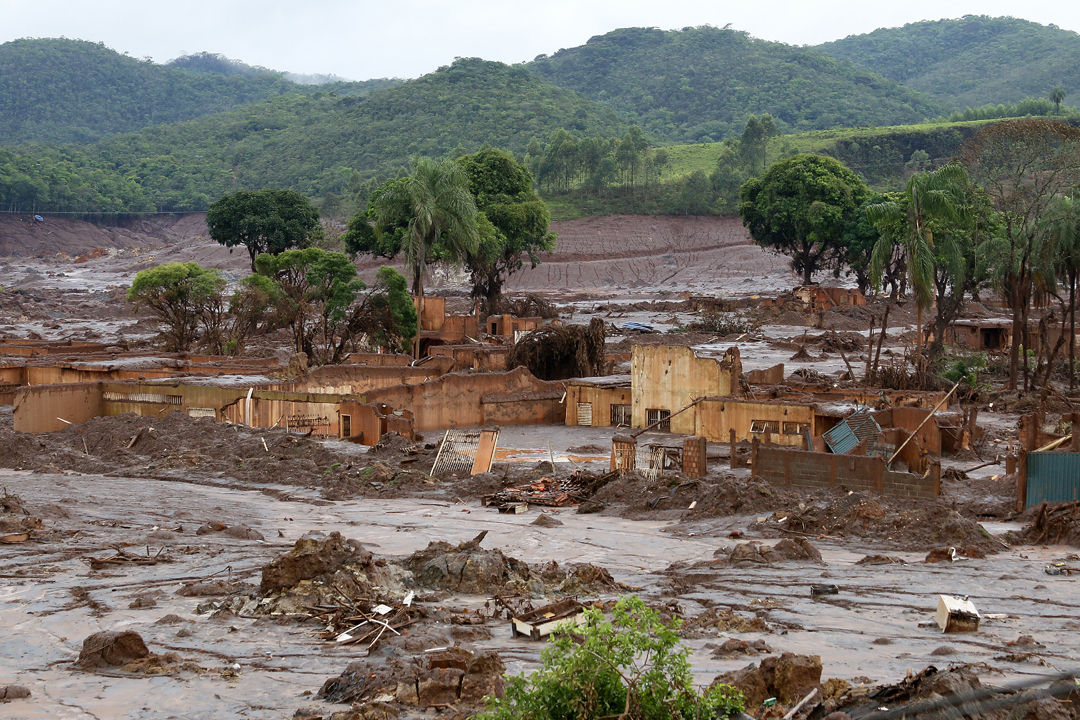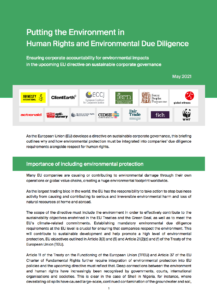This summer, the European Commission is expected to table a directive introducing human rights and environmental due diligence for companies based and operating in the European Union. CIDSE and its allies have been advocating for such a legislation, including through a call signed by more than 230 bishops worldwide. This is a crucial first step in ensuring that businesses’ operations do not contribute to further human rights violations, and to the degradation of our common home.
The environmental aspects of the upcoming Directive will be crucial to ensure that the provisions it will contain make a difference in the lives of Europeans and of people around the world, an effective European Green Deal, and reaching climate targets. Environmental impacts and human rights are tightly intertwined, but often legislation focuses solely on a human rights approach – meaning that when negative environmental impacts do not directly constitute a human rights violation, they might not be considered as such. However, the enjoyment of basic rights such as the right to food, water and a healthy life are clearly linked to having access to a healthy environment – especially for communities in the Global South, whose livelihoods often depend directly on access to natural resources.
In this new briefing, CIDSE, Amnesty International, Client Earth, ECCJ, Fern, Forest Peoples Programme, Global Witness and Anti-Slavery International set out the minimum environmental standards to which the upcoming EU legislation should provide.
CIDSE contact: Giuseppe Cioffo, Corporate Regulation Officer (cioffo(at)cidse.org)
Cover photo:
The collapse of the tailings dam belonging to the Samarco mining company, owned by Vale and Anglo-Australian BHP, caused a flood of mud that inundated several houses in the district of Bento Rodrigues, Municipality of Mariana, Minas Gerais, Brazil in November 2015.
Credit: Rogério Alves/TV Senado.


